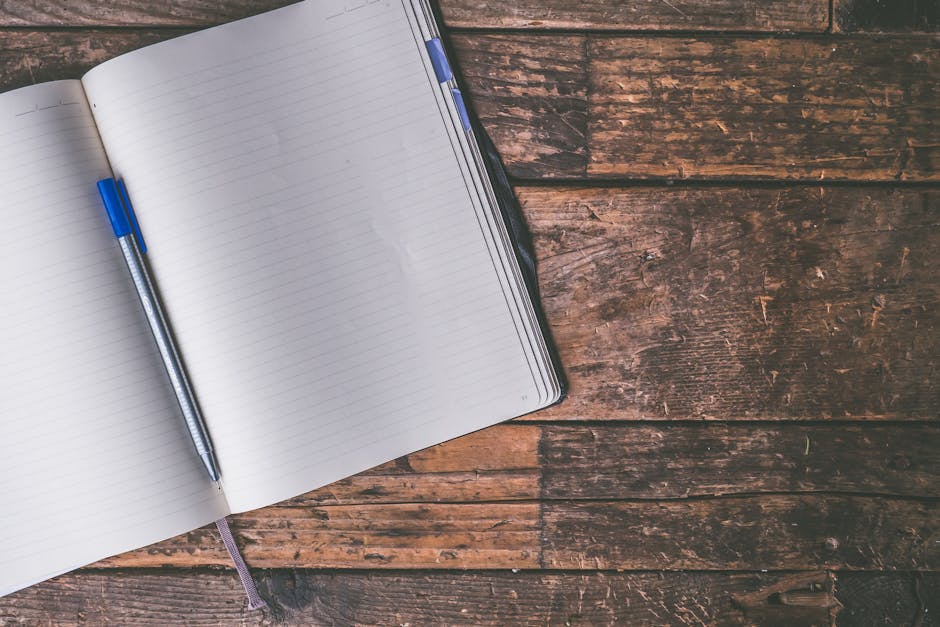Effective Note-Taking Strategies for Students
Have you ever sat in class, listening to a lecture, and wished you could remember everything? you’re not alone! A lot of students struggle with note-taking. But good notes can make a big difference in your learning. They help you remember information and prepare for exams. So, how can you improve your note-taking skills? Lets explore effective strategies that can help you succeed.
Why is Note-Taking Important?

Note-taking is more than just writing down what your teacher says. it’s about understanding and organizing information. Studies show that students who take effective notes learn better. They can recall information more easily during tests and homework. So, every time you write notes, you’re not just making a record. you’re building your knowledge!
What Are the Best Note-Taking Methods?

There are many ways to take notes. Here are some popular methods that students find helpful:
- Cornell Method: This system divides your page into three sections: notes, cues, and summary. You write your main notes in the large section, questions or keywords in the left column, and a summary at the bottom.
- Mind Mapping: This is a visual method. Start with a central idea in the middle of the page and branch out with related topics. It helps you see connections between ideas.
- Outlining: Use bullet points or numbers to create a structured list of information. This method is great for organizing details in a clear way.
- Digital Note-Taking: Many students prefer typing their notes. Tools like Google Docs and Microsoft OneNote allow you to easily edit and organize your notes.
Choosing the right method depends on your learning style. Experiment with different techniques to see what works best for you.
How Can You Stay Organized?

Staying organized is key to effective note-taking. Here are some tips to help you keep your notes neat:
- Date and Title: Always start with the date and a clear title for your notes. This helps you find them later.
- Use In-Text Formatting: Bold important terms or use color to highlight key ideas. This draws your eye to the most crucial information.
- Keep It Tidy: Write neatly or type your notes. Messy notes can be hard to read, which makes studying difficult.
- Review Regularly: Go over your notes regularly. This helps reinforce the information in your memory.
By keeping your notes organized, youll make studying much easier when exam time comes.
What Should You Include in Your Notes?

Not all information is created equal. Some details are more important than others. Heres what to focus on:
- Main Ideas: Capture the important points your teacher emphasizes. These often appear in slides or are repeated for emphasis.
- Definitions: Write down definitions of key terms. This can help you understand concepts better.
- Examples: Note down examples that illustrate a point. They make abstract ideas more concrete.
- Questions: Jot down any questions you have. This encourages you to seek answers later.
Including these elements will make your notes more useful for studying and understanding the material.
How Can You Improve During Lectures?
Lectures can be fast-paced. Here are some tips to help you keep up:
- Listen Actively: Pay attention to what the teacher is saying. Try to understand the main idea before writing.
- Paraphrase: Put things in your own words. This helps you process the information better.
- Use Abbreviations: Develop a system of shorthand for common words or phrases. This saves time.
- Stay Engaged: Ask questions and participate in discussions. This reinforces learning and keeps you active.
Using these strategies during lectures can help you take better notes and understand the material more deeply.
How Can You Review Your Notes Effectively?
Reviewing your notes is as important as taking them. Heres how to make the most of your study time:
- Summarize: After a lecture, write a brief summary of what you learned. This helps reinforce the material.
- Quiz Yourself: Use your notes to create flashcards or practice quizzes. This can make studying more interactive.
- Group Study: Study with friends. Discussing notes can help clarify things you’re unsure about.
- Visual Aids: Create charts or diagrams based on your notes. Visuals can help solidify complex concepts.
Incorporating these review techniques can help improve retention and understanding of the material.
What Are Common Mistakes to Avoid?
Even the best students make mistakes. Here are some common pitfalls to watch out for:
- Writing Too Much: Avoid copying everything verbatim. Focus on key points instead.
- Skipping Review: don’t forget to review your notes regularly. This is essential for retention.
- Ignoring Questions: don’t skip over questions you have. Make a note to follow up on them.
- Not Customizing: don’t stick to one method if it’s not working. Adapt your style as needed.
Being aware of these mistakes can help you refine your note-taking skills and become a more effective learner.
How Can Technology Help?
We live in a digital age, and technology can enhance your note-taking. Here are some tools to consider:
- Note-Taking Apps: Applications like Evernote and Notion allow you to organize notes and access them from anywhere.
- Recording Lectures: With permission, recording lectures can help you capture details you might miss while taking notes.
- Online Resources: Websites like Quizlet offer study tools like flashcards based on your notes.
- Collaboration Tools: Google Docs enables you to share notes with classmates for group study sessions.
Using these tools can make note-taking more efficient and collaborative.
What Are Actionable Takeaways?
To summarize, here are key strategies to improve your note-taking:
- Choose a note-taking method that fits your style.
- Stay organized by keeping your notes neat and structured.
- Focus on main ideas, definitions, and examples.
- Engage actively during lectures and review notes regularly.
- Use technology to enhance your note-taking experience.
Remember, effective note-taking is a skill that takes practice. don’t get discouraged if it doesnt come naturally at first. With time and effort, youll find the methods that work best for you.
For more tips on studying techniques, check out our blog post on Study Tips for Success. And remember, taking good notes can lead to better grades and a deeper understanding of your courses!
So, start implementing these strategies today and watch your learning experience improve!


